Filter by
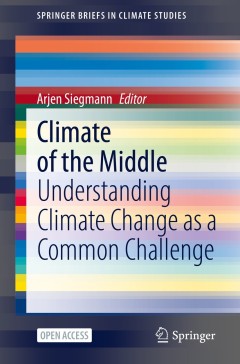
Climate of the middle
his Open Access book presents a multidisciplinary perspective to increase our understanding of climate policies that are rooted in the natural moral inclinations of people, families and firms. Which policies prevent a widening gap between higher and lower educated people? Which policy instruments are there, and how could they be used? What is the role of free entrepreneurship?
- Edition
- 1
- ISBN/ISSN
- 9783030853228
- Collation
- ix; 71 PG; ill.
- Series Title
- SpringerBriefs in Climate Studies
- Call Number
- 363.73874 CLI c
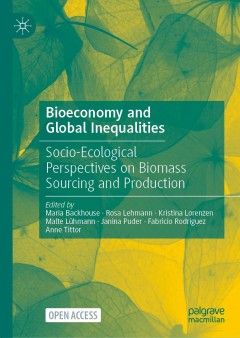
Bioeconomy and global inequalities
This open access book focuses on the meanings, agendas, as well as the local and global implications of bioeconomy and bioenergy policies in and across South America, Asia and Europe. It explores how a transition away from a fossil and towards a bio-based economic order alters, reinforces and challenges socio-ecological inequalities. The volume presents a historically informed and empirically r…
- Edition
- 1
- ISBN/ISSN
- 9783030689445
- Collation
- xvi; 381 PG; ill.
- Series Title
- -
- Call Number
- 354.3 BIO b
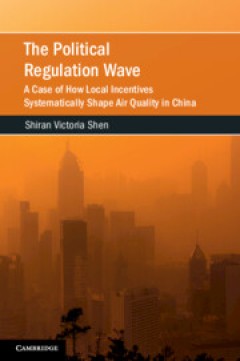
The Political Regulation Wave : A Case of How Local Incentives Systematically…
Why has there been uneven success in reducing air pollution even in the same locality over time? This book offers an innovative theorization of how local political incentives can affect bureaucratic regulation. Using empirical evidence, it examines and compares the control of different air pollutants in China-an autocracy-and, to a lesser extent, Mexico-a democracy. Making use of new data, appr…
- Edition
- -
- ISBN/ISSN
- 9781009103664
- Collation
- xviii, 164 p ; ill
- Series Title
- -
- Call Number
- 363.7392 POL
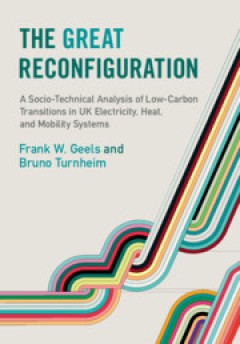
The great reconfiguration : a socio-technical analysis of low-carbon transiti…
This book is intended for researchers, policymakers, and practitioners interested in the dynamics and governance of low-carbon transitions. Drawing on the Multi-Level Perspective, it develops a whole system reconfiguration approach that explains how the incorporation of multiple innovations can cumulatively reconfigure existing systems. The book focuses on UK electricity, heat, and mobility sys…
- Edition
- -
- ISBN/ISSN
- 9781009198233
- Collation
- xiii, 399p.; ill.
- Series Title
- -
- Call Number
- 333.70941 GEE t
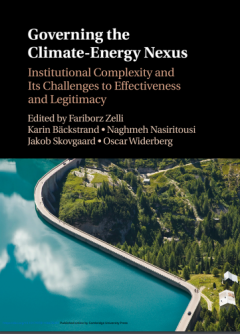
Governing the Climate-Energy Nexus
Combating climate change and transitioning to fossil-free energy are two central and interdependent challenges facing humanity today. Governing the nexus of these challenges is complex, and includes multiple intergovernmental and transnational institutions. This book analyses the governance interactions between such institutions, and explores their consequences for legitimacy and effectiveness.…
- Edition
- -
- ISBN/ISSN
- 9781108676397
- Collation
- xviii, 294p,: ill
- Series Title
- -
- Call Number
- 393.73874561 GOV

Decolonising blue spaces in the anthropocene: freshwater management in Aotear…
This open access book crosses disciplinary boundaries to connect theories of environmental justice with Indigenous people’s experiences of freshwater management and governance. It traces the history of one freshwater crisis – the degradation of Aotearoa New Zealand’s Waipā River– to the settler-colonial acts of ecological dispossession resulting in intergenerational injustices for Indi…
- Edition
- -
- ISBN/ISSN
- 9783030610715
- Collation
- xii, 494p. : ill
- Series Title
- Palgrave Studies in Natural Resource Management
- Call Number
- 363.700993 MEG d
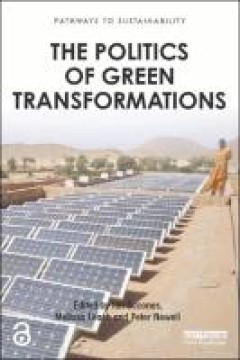
The politics of green transformations
Multiple ‘green transformations’ are required if humanity is to live sustainably on planet Earth. Recalling past transformations, this book examines what makes the current challenge different, and especially urgent. It examines how green transformations must take place in the context of the particular moments of capitalist development, and in relation to particular alliances. The role of th…
- Edition
- -
- ISBN/ISSN
- 9781315747378
- Collation
- xv, 238 p. : ill.
- Series Title
- -
- Call Number
- 320.58 SCO t
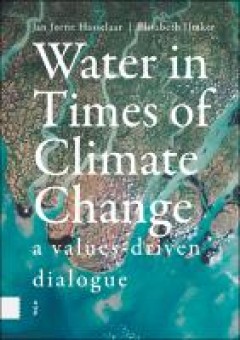
Water in times of climate change : a values-driven dialogue
This book on water and climate change goes beyond the usual and predictable analyses, by bringing religion and values into a discussion that is often dominated by technocratic solutions. The three case studies of Jakarta, Cape Town, and Amsterdam demonstrate the challenges of water management in urban areas and the role religion can play in addressing them. With representatives from science, po…
- Edition
- -
- ISBN/ISSN
- 9789048555383
- Collation
- 151 p. : ill.
- Series Title
- -
- Call Number
- 202.12 HAS w
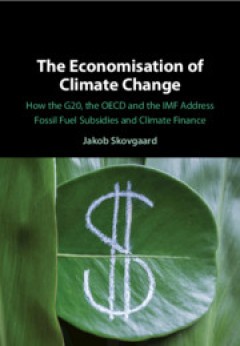
The economisation of climate change : how the G20, the OECD and the IMF addre…
The effort to address climate change cuts across a wide range of non-environmental actors and policy areas, including international economic institutions such as the Group of Twenty (G20), International Monetary Fund (IMF), and the Organisation for Economic Co-operation and Development (OECD). These institutions do not tend to address climate change so much as an environmental issue, but as an …
- Edition
- -
- ISBN/ISSN
- 9781108688048
- Collation
- xvii, 298 p. ; ill
- Series Title
- -
- Call Number
- 333.72 SKO t
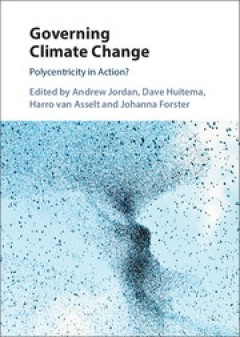
Governing climate change : polycentricity in action?
Climate change governance is in a state of enormous flux. New and more dynamic forms of governing are appearing around the international climate regime centred on the United Nations Framework Convention on Climate Change (UNFCCC). They appear to be emerging spontaneously from the bottom up, producing a more dispersed pattern of governing, which Nobel Laureate Elinor Ostrom famously described as…
- Edition
- -
- ISBN/ISSN
- 9781108284646
- Collation
- xv, 408 p. ; ill
- Series Title
- -
- Call Number
- 363.7387453 HUI g
 Computer Science, Information & General Works
Computer Science, Information & General Works  Philosophy & Psychology
Philosophy & Psychology  Religion
Religion  Social Sciences
Social Sciences  Language
Language  Pure Science
Pure Science  Applied Sciences
Applied Sciences  Art & Recreation
Art & Recreation  Literature
Literature  History & Geography
History & Geography